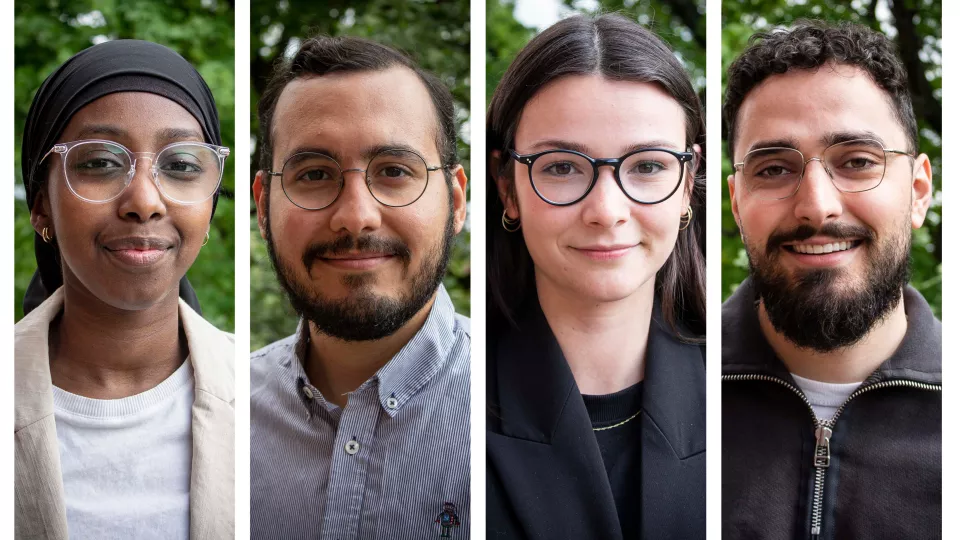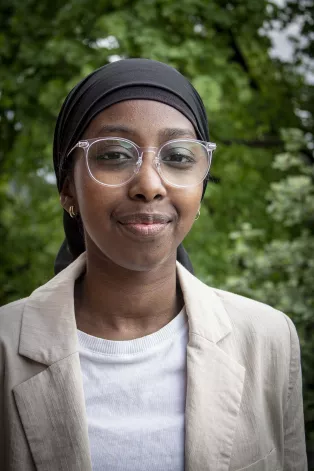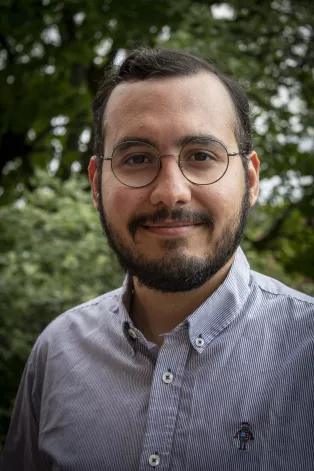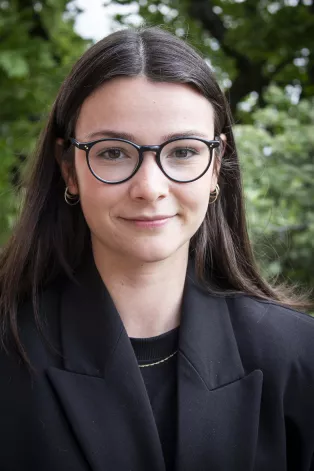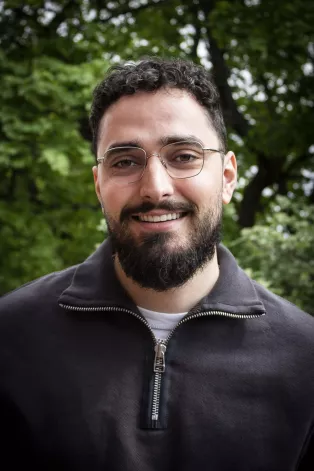The course brought together both doctoral- and master’s students who all participated in the onsite workshop in Gothenburg 15-17 May. We sat down with Salma Mahamed, Ismail Bazine, Gustavo Cadenas Delascio and Marta Pitino to get to know more about their interest and thoughts about the course.
Salma Mahamed
Salma is a doctoral student at the Department of International Economics, Government and Business, Copenhagen Business Specialising in Donor Motives and Interests in Foreign Aid Allocation.
How come you applied to the course?
- I am at the beginning of my PhD-project and wanted to learn more about foreign aid and development cooperation to understand different approaches within the policy cycle, how they work and most importantly, why they don’t. Right now, I am looking at the budget aspects of foreign aid which is a very “top-down” policy area, and I wanted more knowledge on bottom-up processes. Moreover, I wanted to understand my research from the practice point of view and the ‘on the ground’ work which is an aspect I have yet to address. I also wanted to connect with fellow researchers and practitioners in my field.
What did you think of the course?
- I enjoyed the set-up of four online lectures, where we discussed the literature in detail and the final three-day seminar in Gothenburg, where we had great discussions and panel debates. The discussions and debates worked well, as we had a mutual starting point from the online lectures. I also found it very meaningful to discuss with practitioners from the field and people with years and years of experience with foreign aid practices, who added interesting and reflective insights to our debates.
Will the course influence your research?
- As I am still in early phase of my PhD, I am yet to decide on specific aspects of my project, but this course has given me a toolbox of different perspectives, theoretical approaches, and practices of foreign aid that I can bring into my research. I also had the chance to present a very early-stage project idea which I got feedback on from the course participants, which was incredibly helpful.
Gustavo Cadenas Delascio
Gustavo is enrolled in the master’s programme in International Administration and Global Governance, at the University of Gothenburg. His current research is on regional cooperation and the transformation of national sovereignty to address transboundary policy challenges in the Global South.
How come you applied to the course?
- I have been following the Development Research School for a while because it presents an interesting multidisciplinary association of prestigious universities that could provide me with exposure to relevant and updated research in the field of development, which is really needed and welcomed since scholars working on those issues are scattered around different departments with few networks linking them.
What did you think of the course?
- I believe it was a really engaging and thought-provoking course. It allowed for us to build a base of relevant and up-to-date literature on foreign aid, effectiveness, and management approaches which we then engaged with and contested in a very open and energetic setting during the workshop in Gothenburg. Our reflections and ideas were insightful and put into perspective by practitioners and academics with extensive experience, from which we also obtained relevant information and impressions.
Will the course influence your research?
- I got to know the current challenges of development cooperation, and how the Swedish aid system has been tackling them. I also got the opportunity to exchange views on theory and methods with PhD students from different departments across Sweden and Denmark, allowing me to compare and contrast my approaches and get suggestions and recommendations for continuing my work. I believe these interaction spaces are really important for high-quality research output.
Marta Pitino
Marta is a doctoral student at the Department of Peace and Conflict Research at Uppsala University. Her research specialized on community responses to conflict-related sexual violence.
How come you applied to the course?
- I applied to the course because I felt it complemented my research well with topics I was not familiar with prior to it. Because my interests revolve around how different actors shape the resilience of communities affected by conflict-related sexual violence, I realized that I was lacking a background on the role those international actors.
What did you think of the course?
- Not only was the course an opportunity to expose myself to a field I was not familiar with, but it was also a chance to meet and interact with people with very diverse academic and professional backgrounds. I can definitely say I came back to my department with fresh ideas and perspectives, all thanks to the other students, professors and practitioners involved in the course who shared their experiences.
Will the course influence your research?
- I will certainly be on the lookout for ways to dialogue with the world of "practice" more, so that my research does not only speak to academia, but it can also offer insights for practitioners on the field.
Ismail Bazine
Ismail is a master’s student in International Administration and Global Governance, at the University of Gothenburg. In his thesis, Bazine examines around the decision-making process of SIDA, with a particular focus on the selection of aid recipients in autocratic states.
How come you applied to the course?
- I was motivated by a desire to deepen my knowledge and understanding of the field, and I believed that this course would offer valuable insights and perspectives.
What did you think of the course?
- I found the course to be fascinating and engaging. It effectively struck a satisfying balance by incorporating perspectives from practitioners and Ph.D. students with diverse backgrounds. This diverse approach enabled me to develop a comprehensive understanding of the subject matter.
Will the course influence your research?
- Several papers presented during the course have played a crucial role in shaping my thesis. The valuable insights shared by both the practitioners and the Ph.D. researchers have enriched my thesis work, providing me with valuable information that I could directly apply to my research.


